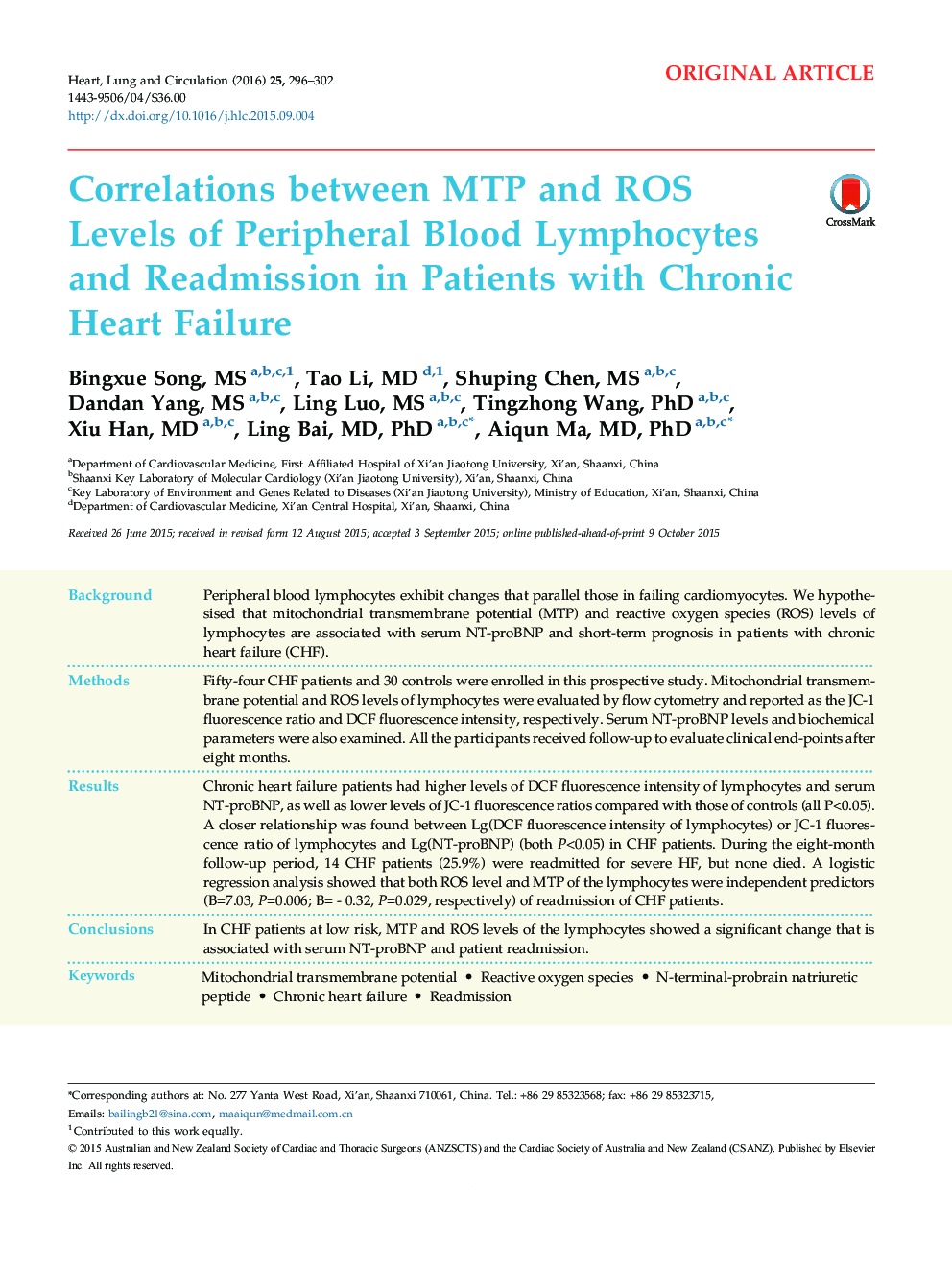| Article ID | Journal | Published Year | Pages | File Type |
|---|---|---|---|---|
| 2916843 | Heart, Lung and Circulation | 2016 | 7 Pages |
BackgroundPeripheral blood lymphocytes exhibit changes that parallel those in failing cardiomyocytes. We hypothesised that mitochondrial transmembrane potential (MTP) and reactive oxygen species (ROS) levels of lymphocytes are associated with serum NT-proBNP and short-term prognosis in patients with chronic heart failure (CHF).MethodsFifty-four CHF patients and 30 controls were enrolled in this prospective study. Mitochondrial transmembrane potential and ROS levels of lymphocytes were evaluated by flow cytometry and reported as the JC-1 fluorescence ratio and DCF fluorescence intensity, respectively. Serum NT-proBNP levels and biochemical parameters were also examined. All the participants received follow-up to evaluate clinical end-points after eight months.ResultsChronic heart failure patients had higher levels of DCF fluorescence intensity of lymphocytes and serum NT-proBNP, as well as lower levels of JC-1 fluorescence ratios compared with those of controls (all P<0.05). A closer relationship was found between Lg(DCF fluorescence intensity of lymphocytes) or JC-1 fluorescence ratio of lymphocytes and Lg(NT-proBNP) (both P<0.05) in CHF patients. During the eight-month follow-up period, 14 CHF patients (25.9%) were readmitted for severe HF, but none died. A logistic regression analysis showed that both ROS level and MTP of the lymphocytes were independent predictors (B=7.03, P=0.006; B= - 0.32, P=0.029, respectively) of readmission of CHF patients.ConclusionsIn CHF patients at low risk, MTP and ROS levels of the lymphocytes showed a significant change that is associated with serum NT-proBNP and patient readmission.
